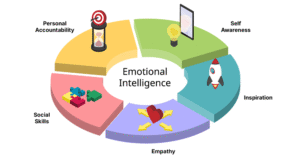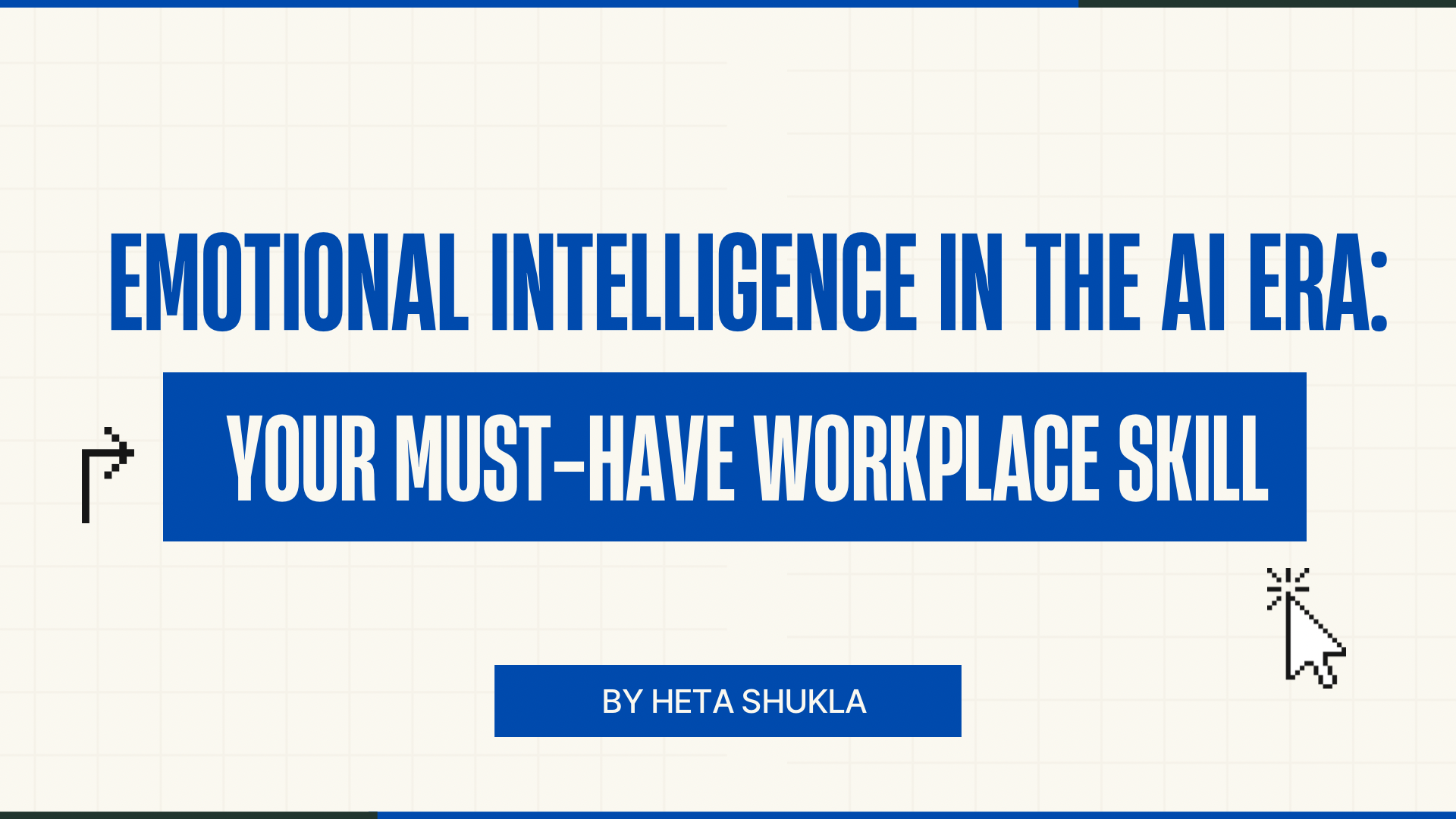Introduction: Why AI Needs EQ
We all know technology and AI are fantastic. They handle the boring, repetitive tasks, making our work easier and faster. From automated reports to smart assistants, AI boosts our efficiency.
But here’s the critical point: While AI masters the data, it can’t master people. It doesn’t have feelings, and it can’t understand the complex dynamics of a team meeting, a negotiation or a difficult conversation with a client.
That’s where Emotional Intelligence (EI) comes in. As AI takes over more technical skills, our human ability to understand and manage emotions—our own and others becomes the most valuable, non-replaceable skill in the workplace. It’s the human edge.
EI: The Core Driver of Productivity and Well-being
In the modern workplace, productivity isn’t just about completing tasks; it’s about how we complete them and how we work together. High EI makes this process better in three key areas:

- Setting and Achieving Goals
➢ Self-Awareness: Knowing your own strengths, weaknesses and stress triggers helps you communicate needs effectively and ask for the right support.
➢ Behavioural Insight: Training helps employees understand why they react to certain situations (like a tight deadline or a frustrating AI error). This knowledge allows them to control their response instead of letting emotions control them.
➢ Outcome: Employees with high self-regulation are better at drafting realistic goals that align with organizational objectives, leading to greater follow-through and less burnout.
- Creating a Productive Environment
➢ Conflict Management: EI allows you to approach disagreements with empathy, focusing on the problem, not the person. This turns potential conflict into constructive problem-solving.
➢ Adaptability: Change is constant (especially with new technology). Emotionally intelligent teams can acknowledge anxiety about change, address it openly, and adapt faster, making the integration of new AI tools smoother.
➢ Fact: Research shows that companies with high EI cultures have lower employee turnover and higher job satisfaction—a clear win for productivity.
- Connecting, Creating, and Collaborating.
➢ Connection (Empathy): Whether you’re dealing with a client or a colleague, EI allows you to read social cues and understand their perspective. This builds trust, which is the essential ingredient for successful client relationships and effective team bonds, especially in remote or hybrid settings.
➢ Creation (Psychological Safety): An EI-driven culture ensures psychological safety. When people feel respected and understood, they are more willing to share bold ideas, ask “stupid questions,” and take risks—which is where true innovation is born.
➢ Collaboration: EI moves teamwork beyond just sharing files. It enables active listening, clear communication and mutual respect, turning a group of individuals into a powerful, cohesive unit.
Key Takeaways for Employees:
|
EI Skill Focus Self-Management Social Awareness Relationship Management Productivity Link | How It Helps You at Work | Corporate Trainer Action Point Facilitate workshops on stress resilience and techniques for emotional regulation during high stakes tasks. Introduce “Active Listening” exercises and “Perspective-Taking” scenarios (e.g., role-playing difficult client calls). Focus on training for constructive feedback delivery and team-based conflict resolution strategies. Show the direct link between managing frustrating emotions (like impatience or annoyance) and achieving project deadlines. |
| You stay calm under pressure, recover quickly from setbacks and manage your time effectively. | ||
| You understand team dynamics, anticipate client needs and read non-verbal cues in meetings. | ||
| You inspire others, build rapport effortlessly, resolve conflicts fairly and lead change. | ||
| You translate self-understanding into focused effort, leading to better outcomes and less friction. |
Technology makes us faster. Emotional Intelligence makes us better. Investing in your EI isn’t a soft skill; it’s a strategic career advantage that ensures you remain valuable, connected and influential in the age of AI.




